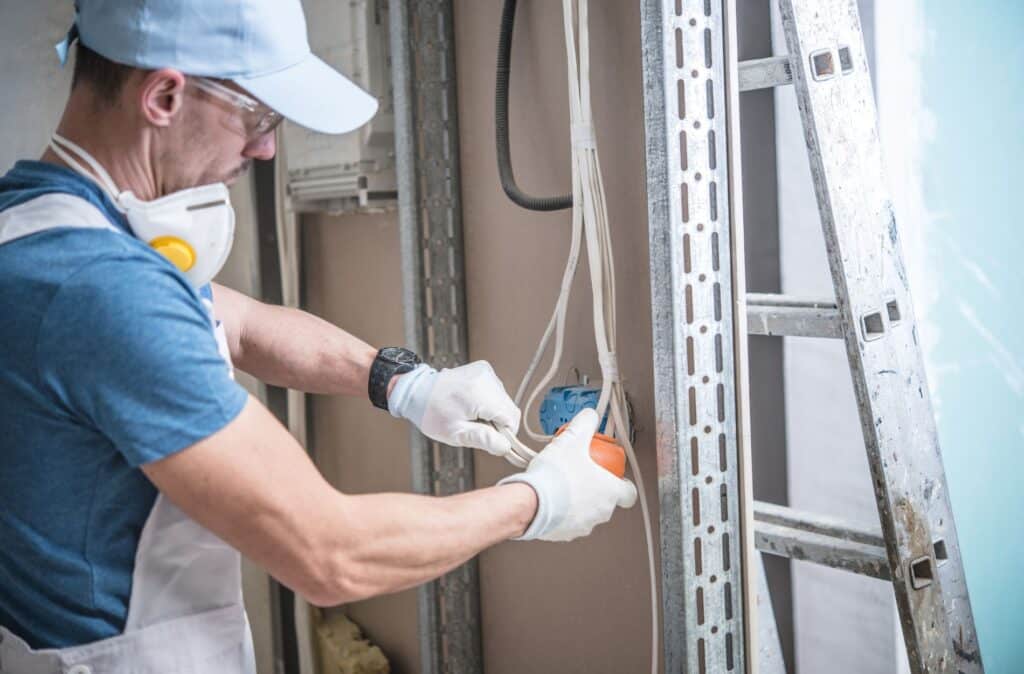With growing environmental concerns and rising energy costs, many homeowners recognize the importance of energy efficiency in their homes. An often-overlooked aspect of energy efficiency involves your home’s electrical system, which plays a pivotal role in managing your energy consumption. By implementing energy-efficient measures and making smart choices in your electrical system, you can reduce your environmental impact, promote sustainability, and save on your energy bills.
Making your home’s electrical system more energy efficient goes beyond simple actions like switching to energy-saving light bulbs or turning off appliances when not in use. It involves evaluating and potentially upgrading your entire electrical network — from wiring and insulation to smart technologies and innovative solutions that optimize your energy consumption without compromising comfort or functionality. By investing in an energy-efficient electrical system, homeowners can enjoy a more sustainable, cost-effective living environment while also increasing the value and appeal of their property.
In this blog post, we will delve into the importance of energy-efficient electrical systems, explore common energy-saving features, and provide expert tips for enhancing your home’s electrical network to achieve maximum efficiency.
Identify Your Home’s Energy Efficiency Potential
The first step towards optimizing your electrical system’s energy efficiency is to identify areas with potential for improvement. Conducting an energy audit of your home can help pinpoint inefficiencies and determine the most effective upgrades. You can perform a basic energy audit by examining your energy bills and conducting a visual inspection of your home’s electrical devices and systems. Alternatively, you can hire a professional energy auditor for a more comprehensive assessment.
1. Examine Your Electrical Insulation and Wiring
Your home’s insulation and wiring are critical factors in determining its overall energy efficiency. Inadequate insulation can contribute to drafts and heat loss, forcing your heating and cooling systems to work harder and consume more energy. Meanwhile, outdated or damaged wiring can not only waste energy but also pose significant safety hazards, such as electrical fires or shocks. Upgrading your home’s insulation and wiring can result in significant energy savings and improved comfort.
2. Opt for Energy-Efficient Light Bulbs and Fixtures
Switching to energy-efficient light bulbs, such as LEDs or CFLs, can significantly reduce your home’s energy consumption. These types of bulbs consume less energy and last considerably longer than traditional incandescent bulbs, translating to long-term cost savings. Additionally, upgrading your lighting fixtures to energy-efficient models can further enhance your home’s lighting efficiency.
Invest in Advanced Energy-Saving Features
By integrating advanced energy-saving features into your home’s electrical system, you can further optimize your energy consumption and achieve greater cost savings. Several cutting-edge solutions cater to specific energy consumption patterns and preferences.
1. Install a Smart Thermostat
A smart thermostat enables you to monitor and control your home’s heating and cooling systems remotely via smartphone apps or web interfaces. By intelligently adjusting your HVAC system’s settings based on factors such as occupancy, weather conditions, and your preferences, a smart thermostat can produce substantial energy savings without compromising your comfort.
2. Utilize Smart Power Strips and Outlets
Smart power strips and outlets can detect when your electrical devices are not in use and automatically turn them off, reducing energy consumption due to standby power. These products often come with features like built-in timers and remote control functionality, allowing you to customize your energy usage according to your needs and schedule.
3. Integrate Home Energy Management Systems
Home energy management systems provide a comprehensive approach to optimizing your electrical system’s performance. These advanced systems can monitor and control various aspects of your home’s energy consumption, from lighting to HVAC, and even renewable energy sources like solar panels. By offering real-time data and analytic insights, home energy management systems can help you make smarter, more informed decisions on your home’s electrical usage.
4. Embrace Solar Energy
Adding solar panels to your home can be a game-changer in terms of energy efficiency and cost savings. By harnessing renewable solar energy, you can potentially offset a significant portion of your electricity consumption, thereby reducing your dependence on the grid and lowering your energy bills. Plus, many states offer tax credits and incentives for homeowners who opt for solar power, making it an even more attractive energy-saving solution.
Work with a Trusted Electrical Contractor
To ensure the success of your energy-efficient electrical system project, it’s essential to partner with a reputable electrical contractor. An experienced contractor can guide you through the process, offering professional advice on the most effective solutions for your specific needs, as well as ensuring the safe and proper installation of all components.
1. Choose a Licensed and Insured Contractor
It’s crucial to select an electrical contractor who is licensed and insured, as this demonstrates their adherence to local regulations and industry standards. By hiring a licensed and insured contractor, you can be confident in their ability to deliver quality workmanship and a highly efficient electrical system.
2. Review the Contractor’s Experience and Specialty
As you evaluate potential electrical contractors, consider their experience and areas of specialization. A contractor with extensive experience in energy-efficient electrical systems can offer valuable insights and advice on the most suitable upgrades for your home, as well as guarantee proper installation and performance of all components.
Conclusion: Embark on Your Energy-Efficient Journey Today
Investing in an energy-efficient electrical system can be a significant boon to your home’s comfort, sustainability, and long-term cost savings. By identifying areas for improvement, leveraging advanced energy-saving features, and partnering with trusted electrical contractors in Twin Cities, you can embark on your journey toward a greener, more efficient home.
Ready to take the first step in upgrading your home’s electrical system for optimal energy efficiency? Contact NCS, your trusted partner in energy-efficient solutions, and schedule a consultation today!


